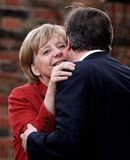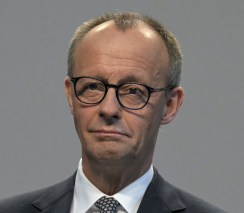 What has happened to Germany? Policy-makers and analysts have been pondering the
question for the last few years. No longer happy to be the pro-European par excellence, Germany has become more assertive, more self-centred – in others words more normal.
What has happened to Germany? Policy-makers and analysts have been pondering the
question for the last few years. No longer happy to be the pro-European par excellence, Germany has become more assertive, more self-centred – in others words more normal.
German scholar Ulrike Guerot has called the new Germany “post-Romantic”, ie more interest-based and less willing to let its history determine its future. Dominic Moisi says Germany has become “a second France.”
Part of the reason is the change among the country’s political elite. The post-war generation has left the scene and the new leaders – on the Left and Right – have little time for Helmut Kohl’s cheque-book diplomacy. Today’s German politicians are led – by the media, the constitutional court in Karlsruhe, or public opinion. They don’t lead as Konrad Adenaur did.

Get Britain's best politics newsletters
Register to get The Spectator's insight and opinion straight to your inbox. You can then read two free articles each week.
Already a subscriber? Log in







Comments
Join the debate for just £1 a month
Be part of the conversation with other Spectator readers by getting your first three months for £3.
UNLOCK ACCESS Just £1 a monthAlready a subscriber? Log in